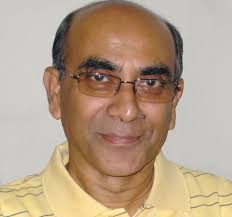Colloquium297
Colloquium # 297
Can one plan to do Great Research?
By Prof. Amit Roy
Inter-University Accelerator Centre, New Delhi
Friday, Sep 20th 2019 at 11:00 AM
Seminar Hall

Abstract
Can one plan to do Great Research?
Any one who takes up a research career would like to do research that has high impact. But we see many promising researchers not succeeding in that goal. Only a few manage to do it. What separates the successful from the rest? Do personal attributes play a role? How do you choose a problem to work on? Will hard work alone ensure success? How much role chance plays? Is there a strategy that can be followed to ensure great research outcome? In this lecture I shall discuss these issues.
About the speaker
Amit Roy completed his Masters in Physics from Delhi University in 1968 and his Ph.D. from Tata Institute of Fundamental Research, Mumbai in 1975 where he continued till 1990 as Associate Professor. He spent two years at Florida State University, USA as a Post-Doctoral Fellow and has worked at KVI, Netherlands and Argonne National Laboratory, USA as visiting scientist. He joined Inter-University Accelerator Centre (formerly Nuclear Science Centre) as a senior scientist in 1991 and was its director from 2001 till July 2013. He led the team for building the Superconducting Linac at IUAC and pioneered the development of Niobium superconducting cavity for accelerators in India. He was DAE Raja Ramanna Fellow at Variable Energy Cyclotron Centre, Kolkata, till May 2017. Currently, he is a Guest lecturer at Indian Association for the Cultivation of Science, Kolkata.
He is a Fellow of the National Academy of Sciences, India. He received the Eminent Scientist award of the Indian Nuclear Society. He has served as President of Indian Cryogenics Council, Chairman of Asian Committee of Future Accelerators, as a member of International Committee for Future Accelerators and as a member of Nuclear Physics Working Group of IUPAP. He is interested in science communication and written several articles on Great Experiments in Resonance.

